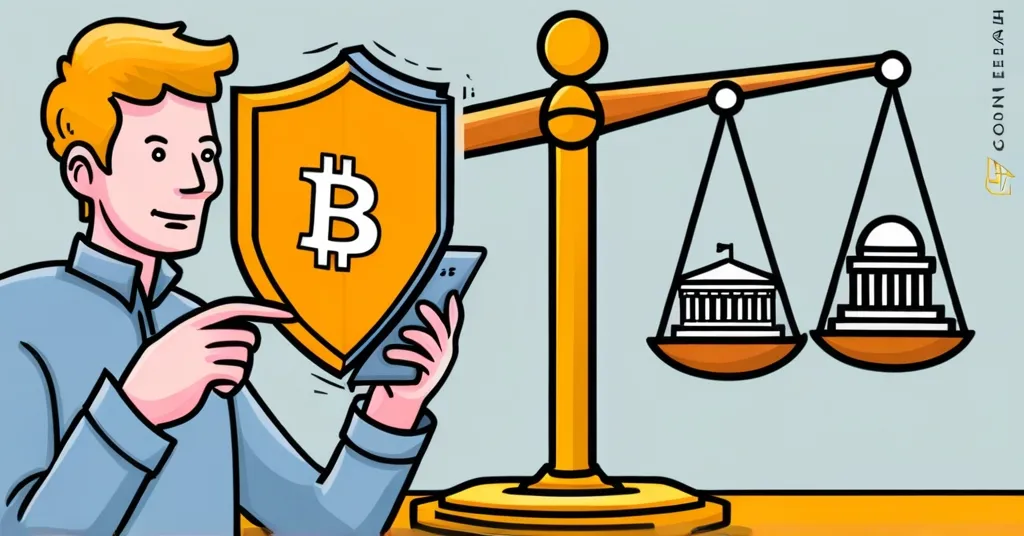CFPB Proposes New Crypto and Digital Payment Protections Amid Trump’s Pro-Bitcoin Presidency

CFPB Proposes New Measures to Safeguard Consumers in Crypto and Digital Payments
The Consumer Financial Protection Bureau (CFPB) is taking action to protect consumers in the realms of cryptocurrency and digital payments. With two new proposals aimed at curbing data surveillance and extending fraud protections, the CFPB is stepping up at a pivotal moment. However, with Donald Trump’s pro-Bitcoin stance and upcoming presidency, the future of these regulations remains uncertain.
- CFPB proposes measures against data surveillance in digital payments
- Extension of fraud protections to include cryptocurrencies and stablecoins
- Uncertainty looms due to Trump’s impending presidency
On January 10, 2025, the CFPB introduced two proposals to enhance consumer protections within the digital payment sector. The first proposal targets the extensive data collection practices of major tech platforms, aiming to prevent what some might call ‘constant surveillance’ of your digital transactions. Think of it as stopping your payment data from becoming a digital fishbowl where advertisers can peer in at will.
The second proposal seeks to extend the fraud protection offered by the Electronic Fund Transfer Act (EFTA) to cover digital payments, including those involving cryptocurrencies like stablecoins. Stablecoins are cryptocurrencies designed to minimize volatility by pegging their value to a stable asset, such as the U.S. dollar. This means that your crypto transactions could soon benefit from the same level of fraud protection as traditional bank transfers.
CFPB Director Rohit Chopra emphasized the importance of these measures, stating:
“When people pay for their family expenses using new forms of digital payments, they must be confident that their transactions are not tainted by harmful surveillance or errors.”
Yet, with Donald Trump set to be sworn in on January 20, 2025, the future of these proposals is uncertain. Trump, a known advocate for Bitcoin and eager to position the U.S. as a crypto hub, could steer the CFPB in new directions. His vision might disrupt these consumer-focused initiatives, creating a regulatory landscape that’s more friendly to innovation but potentially less protective of consumers. For more on the impact of Donald Trump’s presidency on CFPB cryptocurrency regulations, detailed analysis is available.
The CFPB’s research has revealed that some payment mechanisms are gathering more data than necessary, potentially enabling practices like personalized pricing. Imagine if a store charges you more for a product because it knows you’re willing to pay that price based on your data. To combat this, the CFPB has already implemented rules in October and November 2024 targeting big tech’s use of payment data for advertising and mandating supervision of payment tools from companies like Apple and Google.
Stablecoins, with a market cap reaching $205 billion in 2024, are expected to play a larger role in consumer payments. Companies like Stripe, Visa, and PayPal are exploring stablecoin initiatives, aiming to expand their use beyond trading and settlement into areas like remittances and global payrolls. However, the U.S. lacks a unified regulatory framework like the EU’s Markets in Cryptoassets (MiCA) regulation, leaving the stablecoin market with both opportunities and challenges.
The CFPB is inviting public comments on these proposals, with deadlines set for April 11 for the privacy proposal and March 31 for the EFTA proposal. Whether these measures will withstand potential shifts in regulatory focus under a new administration remains to be seen, but the CFPB’s commitment to balancing innovation with consumer safety and privacy in the digital economy is clear.
The crypto world is no stranger to charlatans peddling moonshot promises. The CFPB’s proposals aim to cut through the noise, ensuring that consumers aren’t left vulnerable to scams or privacy invasions. And let’s be real, in an industry where the only thing more volatile than the prices can be the integrity of some players, these steps are a breath of fresh air. Discussions on CFPB cryptocurrency fraud protection proposals can be found on various forums.
While these proposals are a step forward, they also face challenges in an evolving political landscape. The CFPB’s efforts to protect consumers are commendable, but we must remain vigilant to ensure that innovation isn’t stifled by over-regulation. After all, the decentralized ethos of cryptocurrencies thrives on freedom and disruption.
Key Questions and Takeaways
What are the main goals of the CFPB’s new proposals?
The proposals aim to prevent excessive data collection by tech platforms during digital payments and extend fraud protections to cover digital payments, including those involving cryptocurrencies.
How might Donald Trump’s presidency affect these proposals?
Trump’s pro-Bitcoin stance may lead to changes in leadership at the CFPB, potentially impacting the implementation and direction of these proposals.
What specific concerns does the CFPB have regarding digital payments?
The CFPB is concerned about harmful surveillance and errors in digital transactions, as well as the collection of unnecessary data that could enable practices like personalized pricing.
Which companies are specifically targeted by the CFPB’s new rules?
The CFPB’s rules target big tech companies like Apple and Google, as well as payment companies involved in stablecoin initiatives such as Stripe, Visa, and PayPal.
What is the deadline for public comments on these proposals?
The deadline for the first proposal is April 11, and for the second proposal, it is March 31.
As we navigate the future of crypto and digital payments, staying informed about regulatory developments is crucial. The CFPB’s proposals represent a significant step towards a more secure digital future, but the road ahead is filled with both promise and potential pitfalls. Keep an eye on the Consumer Financial Protection Bureau‘s updates to understand how these proposals might affect your digital transactions and the broader crypto landscape.



